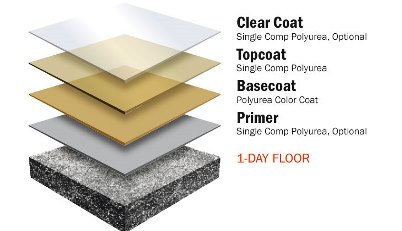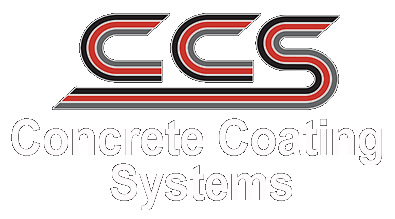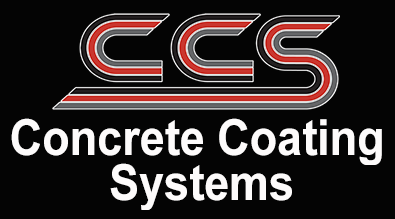
Enhancing Durability and Aesthetics: Exploring the World of Concrete Floor Coatings
As architectural trends continue to evolve, the importance of high-quality flooring has taken center stage. Among the various options available, concrete has emerged as a versatile and durable choice. However, to truly harness the potential of concrete floors, the utilization of appropriate coatings is paramount. In this comprehensive exploration, we delve into the world of concrete floor coatings, uncovering their types and the manifold benefits they bring to the table.
Types of Concrete Floor Coatings
Concrete floor coatings are tailored solutions that provide protection, aesthetics, and improved functionality to plain concrete surfaces. These coatings come in various types, each designed to cater to specific needs and preferences. Here are some of the prominent types of concrete floor coatings:
1. Epoxy Coatings:
Epoxy coatings are renowned for their exceptional durability and versatility. Comprising epoxy resins and hardeners, these coatings chemically bond with the concrete surface to create a dense, resistant layer. Epoxy coatings are available in numerous formulations, including solid colors, metallic finishes, and even self-leveling options. Their benefits include:
- Pros:
- Durability: Epoxy floor coatings are renowned for their exceptional durability. They create a resilient layer that can withstand heavy traffic, impacts, and even chemical spills, making them a popular choice for industrial settings.
- Aesthetic Versatility: Epoxy coatings offer a wide range of colors, patterns, and finishes, allowing you to customize your floor’s appearance to match your style. From solid colors to captivating metallic designs, the options are nearly limitless.
- Easy Maintenance: The seamless surface of epoxy-coated floors makes them incredibly easy to clean and maintain. Dust, dirt, and spills can be wiped away with minimal effort.
Cons:
- Application Complexity: Achieving a flawless epoxy floor requires meticulous preparation and application. Improper mixing, surface preparation, or application can lead to issues like bubbles, delamination, or uneven curing.
- UV Sensitivity: Epoxy coatings can be sensitive to UV exposure, causing them to yellow or chalk when exposed to sunlight over time. This makes them less suitable for outdoor applications or spaces with significant natural light.
2. Polyurethane Coatings:
Polyurethane coatings are prized for their UV stability and resistance to abrasion. These coatings are commonly used in spaces exposed to sunlight or areas where there’s a need for enhanced flexibility. Key benefits of polyurethane coatings include:
- Pros:
- Rapid Cure Time: Polyurea coatings shine in projects where time is of the essence. They have an incredibly fast curing time, often within hours, reducing downtime and allowing for quicker project completion.
- UV Resistance: Unlike epoxy, polyurea coatings are UV-stable and won’t yellow or degrade when exposed to sunlight. This quality makes them a prime candidate for outdoor applications and spaces with large windows.
- Chemical and Abrasion Resistance: Polyurea coatings boast exceptional resistance to chemicals, making them a solid choice for environments where spills and exposure to corrosive substances are likely.
Cons:
- Limited Aesthetic Options: While polyurea coatings offer protection and functionality, their aesthetic customization options are comparatively limited. They often come in a more utilitarian appearance.
- Application Complexity: Just like epoxy, proper surface preparation is crucial for a successful polyurea application. Improper preparation can lead to issues like adhesion problems and inconsistent curing.
If you’re in need of a floor coating for a garage, warehouse, or shop floor you’ve likely heard of two different types of floor coatings: polyurea and epoxy. At Concrete Coating Systems, we have been installing concrete floor coatings since 1985, and in this time we’ve seen a number of different types of coating materials come and go. One material that has been extremely popular, and that we still utilize today is polyurea floor coatings. In this blog, we’ll cover the differences between polyurea floor coatings and epoxy floor coatings and discuss why we continue to recommend polyurea over epoxy time and time again.
Differences Between Polyurea & Epoxy Floor Coatings
There are a whole host of different types of epoxy, and for many years epoxy floor coatings were the preferred choice for many concrete coating companies. Epoxy coatings are typically poured into place and utilize a combination of resins and hardeners to produce a finished product. Polyurea floor coatings are newer, which means that many people, even some in the concrete coating industry, aren’t aware that they exist. Polyurea is a type of polyurethane and is made with isocyanates which are mixed with water or polyetheramines to create what is known as a urea linkage. Similar to an epoxy, polyurea is created with a two-part mixture where a catalyst and a resin come together to harden the substance, and ultimately create the coating.
Two Key Differences in Epoxy vs. Polyurea Floor Coating
Durability
Epoxy is known and heavily advertised for its durability. For a garage floor coating, it can withstand tire marks, chemicals, stains, scratching, and general impact. However, if you are constantly pulling into your garage after a long drive, the heat from your tires is going to wear down on the epoxy within a few years. UV heat will also wear and cause yellowing in the epoxy in outdoor areas. Polyurea is more durable than epoxy and more flexible because it is an elastomer. It is also chemical resistant and can withstand stable heat up to 266℉ and 430℉ for a shorter amount of time according to Corrosionpedia. Polyurea is UV resistant and will not yellow in the sun. This makes polyurea a great option for outdoor patios, pool decks, driveways, and sidewalks. To wrap it all up, polyurea is more durable than epoxy because of its heat and UV resistance as well as its strength against spills, scratches, and impact.
Longevity
The longevity of epoxy and polyurea naturally comes into the conversation when talking about durability. Epoxy coatings typically last three to five years before you start to see wear and deterioration. This means that you are going to find yourself needing to replace that coating sooner than a polyurea coating which will cost you extra time and money. Because polyurea is more durable than epoxy, it has a life expectancy of about 15 years. This product is meant to last you a lifetime. So looking at it all together, polyurea is going to last you at least a decade more than epoxy.
So, Which Is Better?
In our years of experience providing concrete floor coatings to our clients, we’ve found that polyurea floor coatings are far superior to epoxy coatings. Polyurea coatings are extremely flexible, allowing them to not peel or crack in changing temperatures and they’re also waterproof and impact-resistant. In addition, because of its chemical-resistant properties, salt, oil, and gas typically will not damage the coating material. We’ve also found the material to be many times stronger than epoxy coatings, while the cure time is very fast – typically only one day before it is completely cured.
Benefits Galore: Why Opt for Concrete Floor Coatings
Investing in the right concrete floor coating offers a multitude of benefits that go beyond just aesthetics. Some of the key advantages of utilizing these coatings include:
- Enhanced Durability: Concrete floor coatings significantly increase the lifespan of the underlying concrete by protecting it from wear and tear, moisture intrusion, and chemical damage.
- Safety First: Many coatings provide improved slip resistance, ensuring the safety of occupants in both residential and commercial settings.
- Aesthetic Appeal: Coatings allow for endless customization in terms of colors, patterns, and finishes, turning plain concrete floors into visually appealing surfaces.
- Easy Maintenance: Coated floors are easier to clean and maintain, reducing the need for frequent and extensive cleaning efforts.
- Cost-Effectiveness: The extended lifespan of coated floors translates to cost savings over the long run, as the need for repairs and replacements is minimized.
In the dynamic world of construction and design, concrete floor coatings stand as invaluable tools to enhance both the durability and aesthetics of spaces. Whether you’re looking to transform an industrial warehouse, a commercial storefront, or a residential basement, there’s a concrete floor coating suited to your specific needs. By understanding the types of coatings available and the benefits they offer, you can make an informed decision that aligns with your project requirements, resulting in a floor that not only withstands the test of time but also elevates the overall ambiance of the space.
Learn More About Polyurea Floor Coatings
If you’re interested in learning more about polyurea floor coatings to determine if they may be a good fit for your garage, shop, or commercial space, feel free to reach out to our team today by phone at 952-469-6496. Thanks to more than two decades in the industry, we’re confident that regardless of your concrete flooring needs, we can exceed your expectations.

